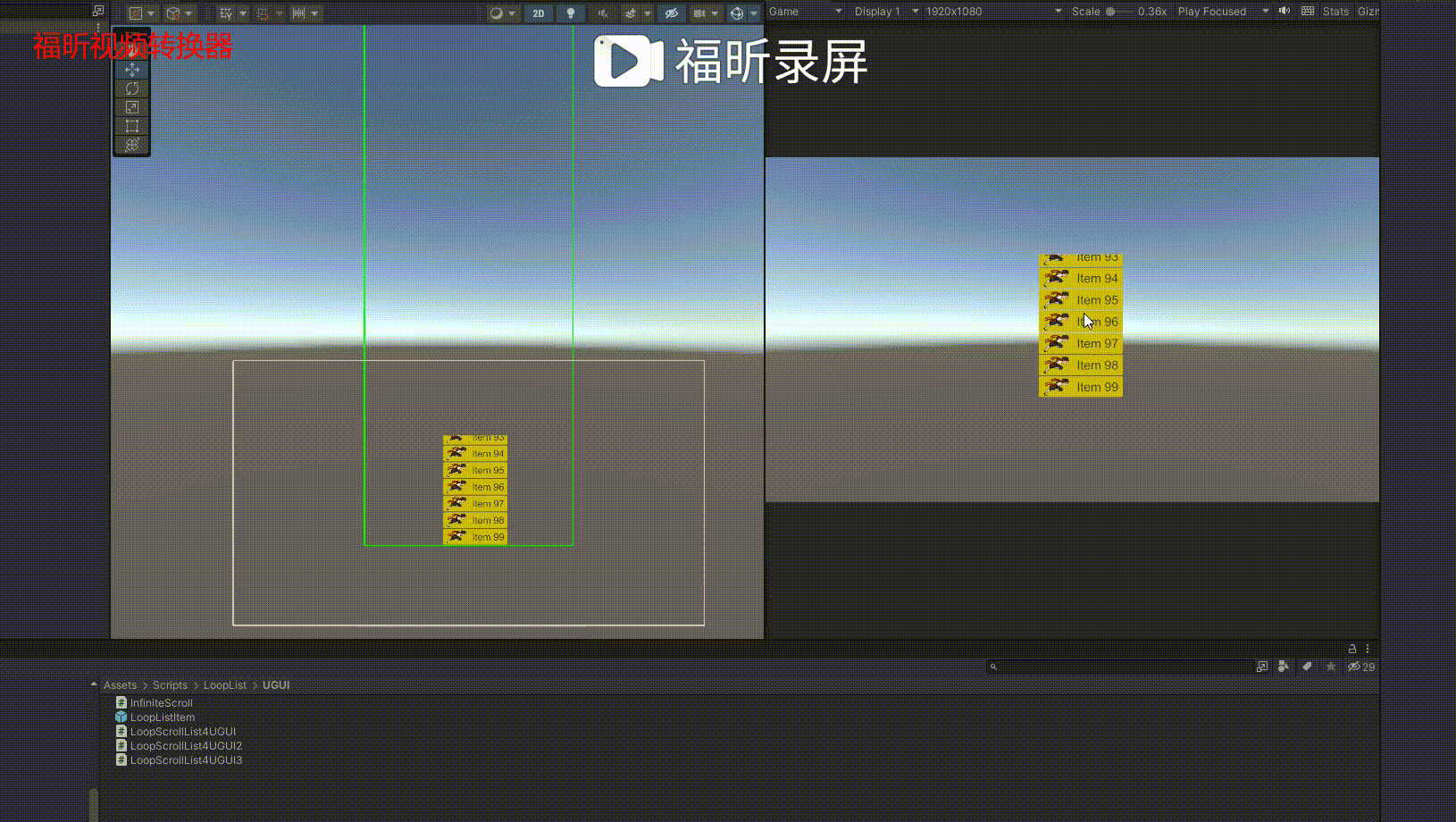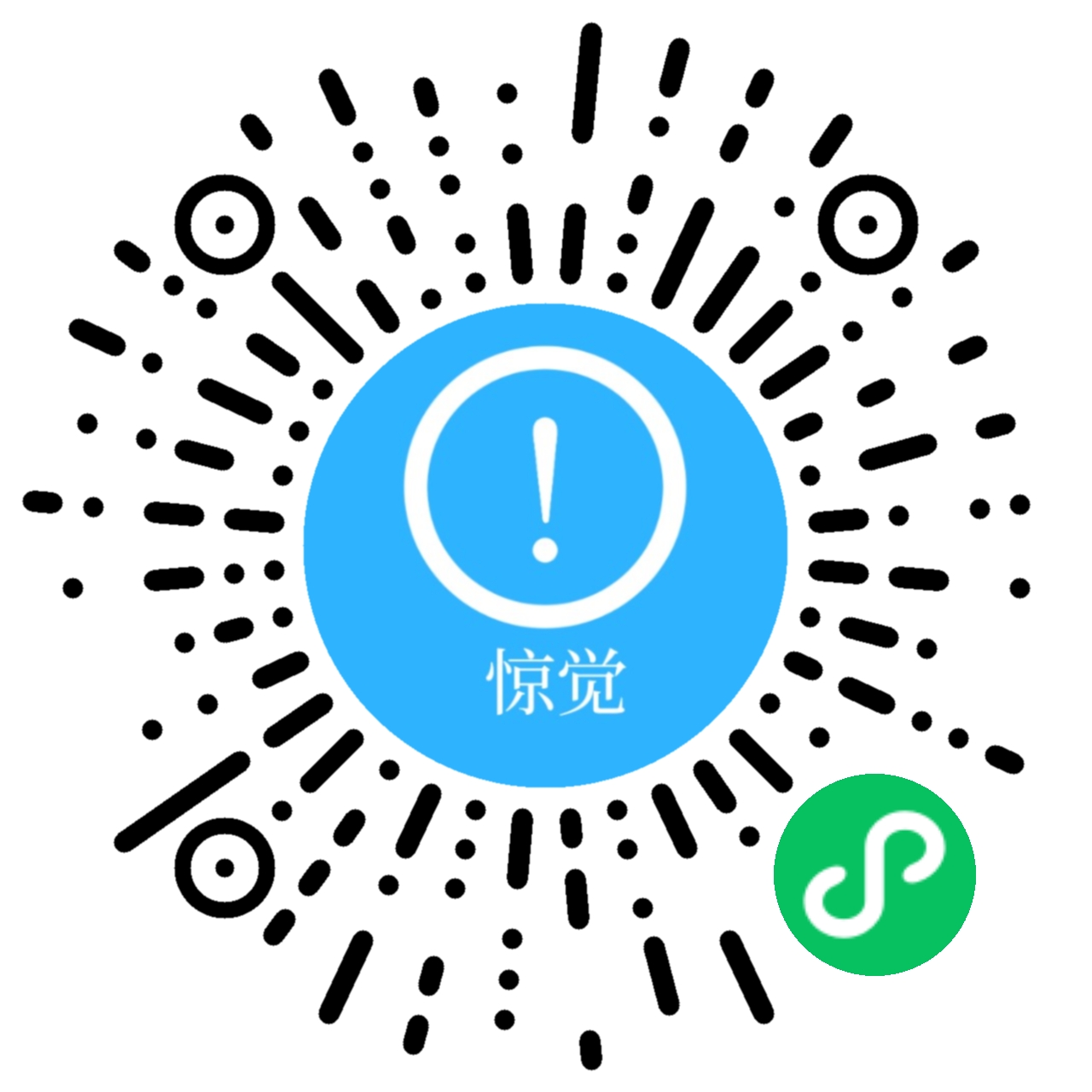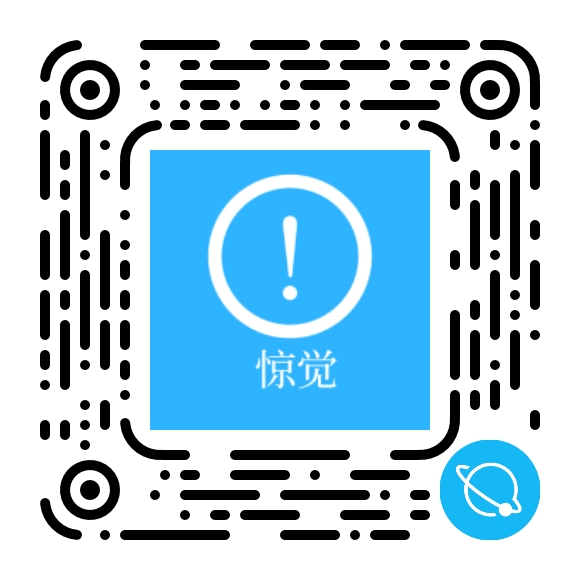原理参照上一篇使用NGUI的制作无限滑动列表的文章
Unity 使用NGUI制作无限滑动列表_unity 滑动列表很多物体-CSDN博客
准备工作:
新建一个空物体命名为LoopList,并调整其大小,

并增加Scroll Rect组件(用于滑动)、Rect2D组件(用于裁剪)

新建一个空物体,命名Content,增加布局组件和自适应组件,再将Content的轴点y轴的值设置为1,这样可以让子物体的第一项从列表的顶部的开始排列。

新建一个脚本,命名为LoopScrollList4UGUI,将其挂载到LoopList物体上。

实现(旧):
首先还是来观察Content及其子物体的情况,

从上可以看到,Content的UI坐标的y轴在变化,子物体的局部坐标不变化,因此可以将Content的位置变化作为参考,在Content上移超出一定位置时,将第一个放到最后一个,下移超出一定位置时,将最后一个放到第一个。
怎样操作?
Content的UI坐标位置是从0开始增加的,也就是说上移在ContentUI坐标y轴值大于一个子物体的宽度,下移在小于0,即可进行头部和尾部的子物体的位置变化。
代码如下:
float currentY = content.anchoredPosition.y;
// 上移超出一个位置时的处理
// 向上滚动
if (currentY > itemHeight)
{
Transform firstItem = content.GetChild(0);
firstItem.SetAsLastSibling();
content.anchoredPosition = new Vector2(content.anchoredPosition.x, content.anchoredPosition.y - itemHeight);
}
// 下移低于一个位置时的处理
else if (currentY < 0)
{
Transform lastItem = content.GetChild(content.childCount - 1);
lastItem.SetAsFirstSibling();
content.anchoredPosition = new Vector2(content.anchoredPosition.x, content.anchoredPosition.y + itemHeight);
}在什么时候计算?
滑动列表的时候,Scroll Rect的onValueChanged会执行,因此只要在监听这个函数的执行时,就可以计算上述的头尾子物体位置变化。
// 监听滚动事件
scrollRect.onValueChanged.AddListener(OnScroll); // 滚动事件处理函数
void OnScroll(Vector2 scrollPosition)
{
float currentY = content.anchoredPosition.y;
// 上移超出一个位置时的处理
// 向上滚动
if (currentY > itemHeight)
{
Transform firstItem = content.GetChild(0);
firstItem.SetAsLastSibling();
content.anchoredPosition = new Vector2(content.anchoredPosition.x, content.anchoredPosition.y - itemHeight);
}
// 下移低于一个位置时的处理
else if (currentY < 0)
{
Transform lastItem = content.GetChild(content.childCount - 1);
lastItem.SetAsFirstSibling();
content.anchoredPosition = new Vector2(content.anchoredPosition.x, content.anchoredPosition.y + itemHeight);
}
}结果:

实现(新):
在原来的基础做了一些更改,更改如下:
1.限制content的位置
content.anchoredPosition = new Vector2(content.anchoredPosition.x,Mathf.Max(contentAnchoredPositionYMin, content.anchoredPosition.y));
content.anchoredPosition = new Vector2(content.anchoredPosition.x, Mathf.Min(contentAnchoredPositionYMax,content.anchoredPosition.y));2.设置content的size
content.sizeDelta = new Vector2(content.rect.width,dataList.Count * itemHeight);3.计算上滑或者下滑,移动Item优化
// 上移超出一个位置时的处理
//向上滚动
if (topItem.position.y >= topY)
{
//超出顶部的距离可以有几个itemHeight的距离
int times = Mathf.CeilToInt((topItem.position.y - topY) / itemHeight);
//超出的距离中不满一个itemHeight的部分,需要将这部分在后续计算中处理
float offset = (topItem.position.y - topY) % itemHeight;
for (int i = 0; i < times; i++)
{
topItem = content.GetChild(topIdx);
topItem.position = new Vector3(topItem.position.x, bottomY + (times - i - 1) * itemHeight + offset, topItem.position.z);
topIdx++;
topIdx %= (visibleItemCount + 1);
topItem = content.GetChild(topIdx);
bottomItem = content.GetChild((topIdx + visibleItemCount) % (visibleItemCount + 1));
}
}
// 下移低于一个位置时的处理
else if (bottomItem.position.y <= bottomY)
{
int times = Mathf.CeilToInt(Mathf.Abs(bottomItem.position.y - bottomY) / itemHeight);
float offset = Mathf.Abs(bottomItem.position.y - bottomY) % itemHeight;
for (int i = 0; i < times; i++)
{
bottomItem = content.GetChild((topIdx + visibleItemCount) % (visibleItemCount + 1));
bottomItem.position = new Vector3(bottomItem.position.x, topY - (times - i - 1) * itemHeight - offset, bottomItem.position.z);
topIdx--;
if (topIdx < 0)
{
topIdx = visibleItemCount;
}
topItem = content.GetChild(topIdx);
bottomItem = content.GetChild((topIdx + visibleItemCount) % (visibleItemCount + 1));
}
}4.更新Item信息
// 上移超出一个位置时的处理
//向上滚动
if (topItem.position.y >= topY)
{
...省略部分代码....
currentDataoffSet++;
//根据currentDataoffSet来更新Item的具体信息
UpdateItem(bottomItem.gameObject, currentDataoffSet + visibleItemCount);
}
}
// 下移低于一个位置时的处理
else if (bottomItem.position.y <= bottomY)
{
...省略部分代码....
currentDataoffSet--;
//根据currentDataoffSet来更新Item的具体信息
UpdateItem(topItem.gameObject, currentDataoffSet);
}
}结果:
实现(新2):
思路:脚本继承ScrollRect,重写SetContentAnchoredPosition函数,得到content的移动位置,用两帧的差值来改变子物体位置。
转载自CSDN-专业IT技术社区
原文链接:https://blog.csdn.net/weixin_50702814/article/details/146191243



